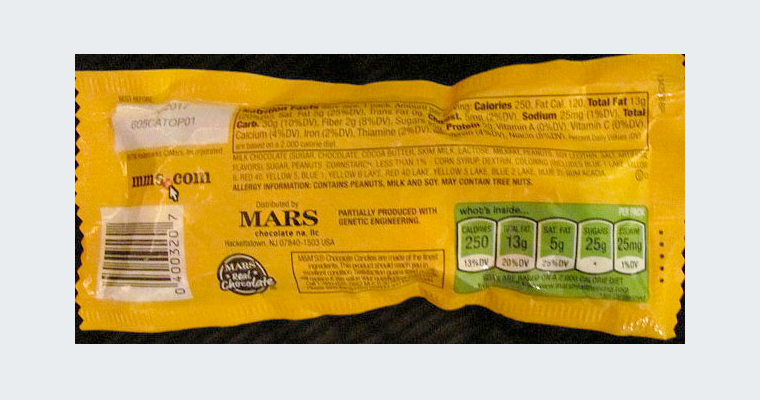In a stunning turn of events, several major food companies recently announced they would label all products containing genetically modified ingredients nationwide to comply with Vermont’s mandatory GMO labeling law, which takes effect July 1.
General Mills, Mars, Kellogg, and ConAgra Foods made their announcements just a few days after the U.S. Senate rejected a bill that would have established voluntary GMO labeling and pre-empted Vermont’s and other state labeling laws.
The four companies, which are ranked in the top 15 largest food companies in the U.S. and Canada, are following the lead of the Campbell Soup Company, which announced in January that it would label all of its products containing GMOs.
General Mills: labeling won’t increase food prices
In a blog on General Mills’ website, Jeff Harmening, executive vice president and chief operating officer for U.S. retail, wrote: “We can’t label our products for only one state without significantly driving up costs for our consumers and we simply will not do that…The result: consumers all over the U.S. will soon begin seeing words legislated by the state of Vermont on the labels of many of their favorite General Mills products.”
Harmening also said that the company will provide a website, Ask.GeneralMills.com, to provide GMO ingredient information for hundreds of the company’s U.S. products, along with reference information.
Mars, Kellogg, and ConAgra posted statements on their websites announcing they would label their products to comply with Vermont’s law. Kellogg North America president Paul Norman said that the company plans to label products to be sold nationwide as “Produced with Genetic Engineering” as early as mid-April. Mars candy products with such labels are already on store shelves.
Like General Mills, Kellogg has also launched a website, OpenForBreakfst.com, where consumers can ask questions about products containing GMO ingredients.
Campbell and Mars expressed support for mandatory GMO labeling, while General Mills, Kellogg, and ConAgra said they support a “national standard” for labeling.
All four companies said in their statements that GMOs are safe, but that they support consumers’ desire to know what’s in their food.
Like Campbell, General Mills said that GMO labeling won’t result in higher food costs to consumers, giving lie to labeling opponents’ claim that it would increase food costs.
As required by Vermont’s law the companies will put “Produced with Genetic Engineering” or “Partially Produced with Genetic Engineering” in small letters on the back panel of their products.
Vermont’s GMO labeling law takes effect July 1 and food companies that don’t comply with the law face fines of $1,000 per day for every product found on grocery store shelves that isn’t properly labeled.
Could lead to more non-GMO labeled products
Experts offered differing perspectives on the GMO labeling moves. Scott Faber of the Environmental Working Group called General Mills’ announcement “a watershed moment in the fight for more transparency.” Food industry trade group Grocery Manufacturers Association wasn’t pleased, calling Vermont’s looming labeling law a “serious problem for business” and said that General Mills’ announcement “should give new urgency to the need for action on a national law when the Senate returns from its recess in April.” The Organic Consumers Association took a skeptical view toward the labeling moves, wondering if they are a “public relations ploy” or a calculated strategy to help Congress establish a weak voluntary labeling law.
Carl Jorgensen, director of global consumer strategy-wellness for Daymon International, said: “General Mills determined that changing labels just for Vermont was not feasible, and that a nationwide change is their only practical alternative. They may also be making a similar calculation to that of Campbell, that transparency is almost always a positive strategy.”
Marion Nestle, professor of Nutrition, Food Studies, and Public Health at New York University, wrote on her blog Food Politics: “The GMO and grocery industries brought this situation on themselves by so strongly opposing labeling in 1994… Unless the industry can find another way to stop it, foods will be GMO labeled this year.”
Kristen Polovoy of Montgomery, McCracken, Walker & Rhoads, told FoodNavigator-USA she expected similar announcements from more companies along with increased sourcing of non-GMO ingredients. “In short, if ‘GMO-free’ is the new ‘gluten-free’ in the public eye, food manufacturers might be looking to roll out nationwide GMO-free labels to stay not so much ahead of the curve but just with the curve in the first instance.”
It will be interesting to see the impact of the big companies’ GMO labeling moves on federal legislation to create a national labeling standard.
(Sources: Food Business News, FoodNavigator-USA)









